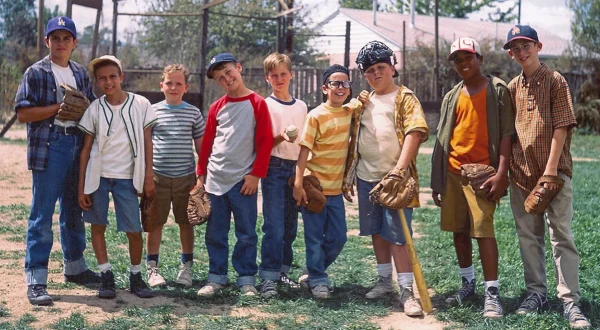Kampe’s team camp brings prep talent, possible recruits, to campus
Walk around Oakland University in late June. There are actually spots in P1.
Basketball season, too, is quiet. It seems just about the last thing to think about as the thermometer grasps for 90. But something’s cooking.
After the O’rena and attached Recreation Center were put up in the late nineties, head basketball coach Greg Kampe had a thought. Six high-school courts sat within his reach, three in the O’rena, three at the rec, air conditioning in each one. Opportunity, too.
And so Oakland hosts, according to Kampe, the largest team boys basketball camp in the state.
Sarah Judd, director of basketball operations, handles the registration. Kampe handles the scheduling for the 70 high school teams and tries to make the games good matches.
“We have the best players in the state and the best teams in the state,” he said. “It’s just my job to make sure the right teams are playing the right teams.”
It takes him about 10 hours, he said, but that it gets easier when teams return.
Teams want new foes, no repeats from the regular season. They come to expand experience, to make the most of the 15 days of team summer practice allotted by the Michigan High School Athletic Association.
Teams are guaranteed six games. The camp costs $495 and includes “t-shirts, head coach’s gift, referees, and team entrance to one home game,” according to the website.
Kampe said it’s around the camp’s 17th year of existence. Shortly after the inception, Oakland University didn’t want the liability. So Kampe started a limited liability company. He takes out insurance and rents the facilities from the athletic department.
“I don’t do this to make money,” Kampe said. “Cause we don’t make much money on it. What I do it for, is to, yeah.”
Kampe saw some players off to his right and stopped.
“Just want to say thank you,” one kid said.
“My pleasure,” Kampe said.
“We had fun,” he said.
“Have a great year,” Kampe said.
The players left.
Logistics
Before the interview, Kampe was sitting in the stands, talking with a man.
“Usually I sit here, but one of our top recruit’s parents were over there,” Kampe said. “You can’t go talk to parents on the road, but if they come to your camp you can talk to them. So it’s a great tool for us.”
It’s also useful for Division II and Division III coaches. While no other Division I coach can come to the camp, Saginaw Valley, Hillsdale, and Kalamazoo all made an appearance.
The officials get something out of it, too, as the camp doubles as a college referee clinic.
“You can see the referees have numbers that are tags on their back. They’re being videoed. See down in the corner, the black shirts? They’re evaluating the referees, and then they’ll meet with the referees, and they do video sessions.”
The refs are under the spotlight not just from the black shirts. The head of the Big 10 officials was there the day before.
Time
Kampe has been doing this camp the better part of two decades.
“They game’s changed, the kids changed,” he said. “The thing that’s changed the most is the parents. That’s the biggest. [The kids] change because the parents change.”
He said the previous generation’s athletes did what you said without question. Now they want to know “why?” Now they’re seeking quicker gratification.
He said it’s just the way they’re brought up, and that it doesn’t make coaching more difficult, but different.
“I’ve changed the way I coach,” Kampe said. “I had to do that with my team this year. I’m a guy that gets excited and yells a lot and that. And this team I had this year didn’t respond to that. So halfway through the year I had to change my tactic of coaching. And that’s, that’s life. Everybody’s got to change as you mature and grow up and get older, and even when you’re my age. If you’re going to continue to have success, you’ve got to change with the times.”
Proving ground
“This is our biggest recruiting tool we have,” Kampe said. “Any kid that we’re recruiting, we beg their coach to come to our team camp.”
In this way, Kay Felder, Martez Walker, Sherron Dorsey-Walker, Percy Gibson, Nick Daniels, Travis Bader and Keith Benson saw Oakland before they played as Golden Grizzlies. Kampe said 50-60 percent of his recent players were in his team camp.
“They pay to be here,” he said. “But it’s not a lot, and we give them a lot of stuff. We get a chance to put an Oakland t-shirt on 800 kids.”
So the university benefits, as well, Kampe said. Not only because of the t-shirts. The kids get to see the campus, as well. They might end up attending Oakland even if they don’t play basketball.
“I want 800 kids to walk away thinking Oakland University is the greatest place they’ve ever been.”
But still, recruiting looms large. The team camp is like a job fair for athletes.
Kampe said there were eight kids at this year’s camp to whom they’d already offered scholarships, or to whom they would be based on their performance.
“It’s a proving ground for us,” Kampe said.
Good matched against good, right before Oakland’s eyes.



